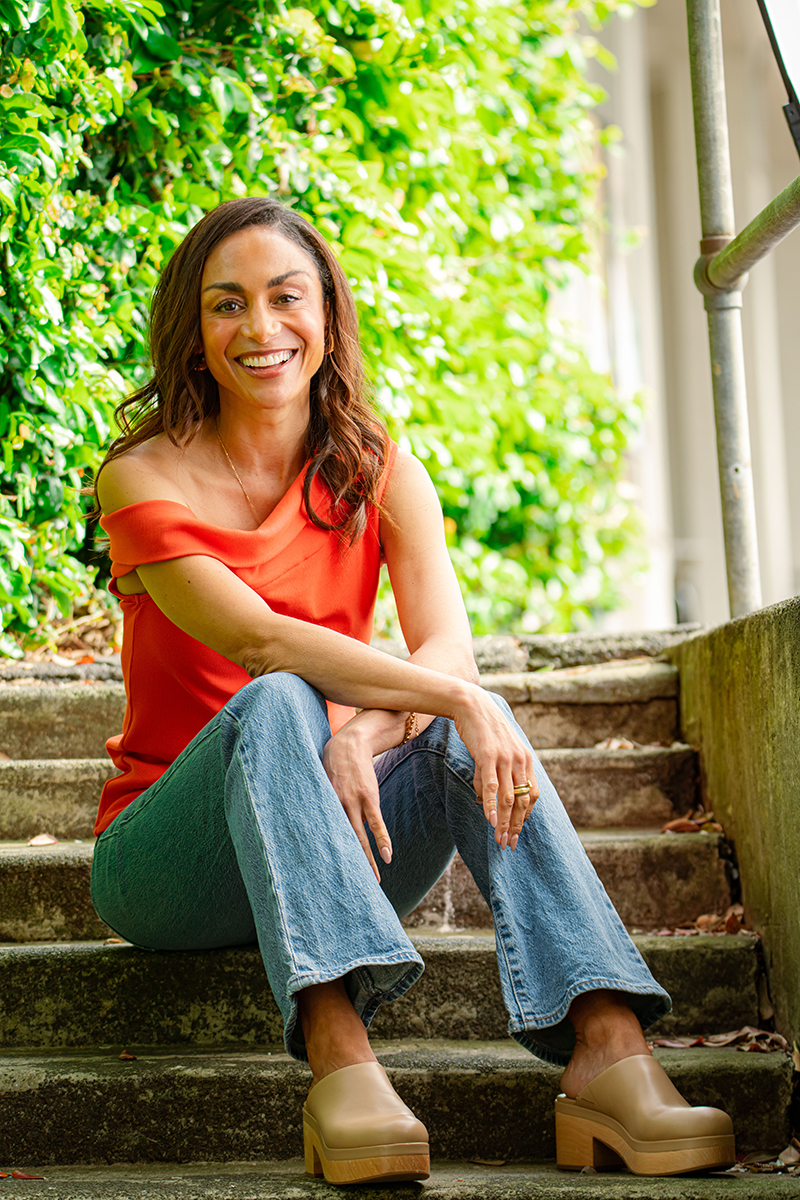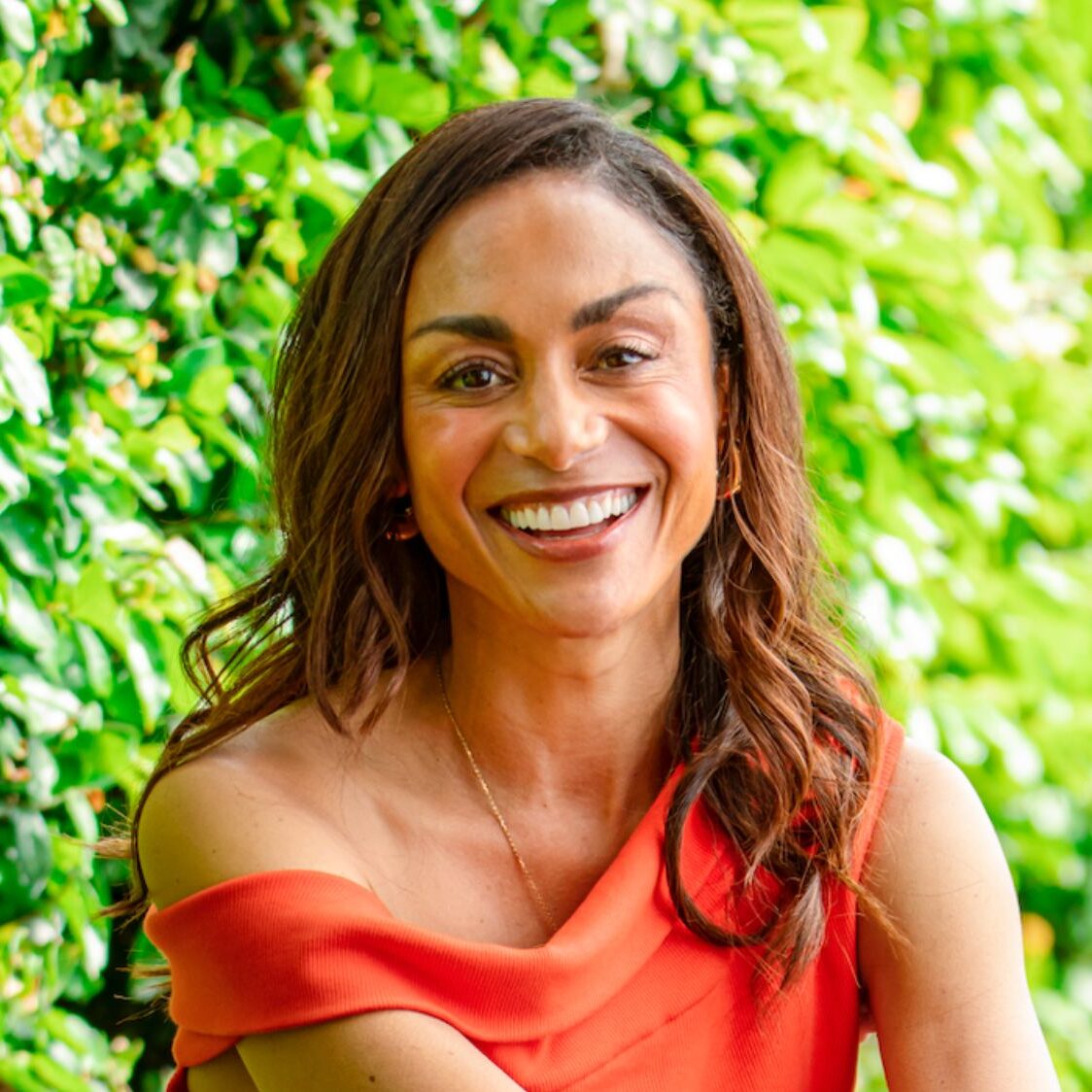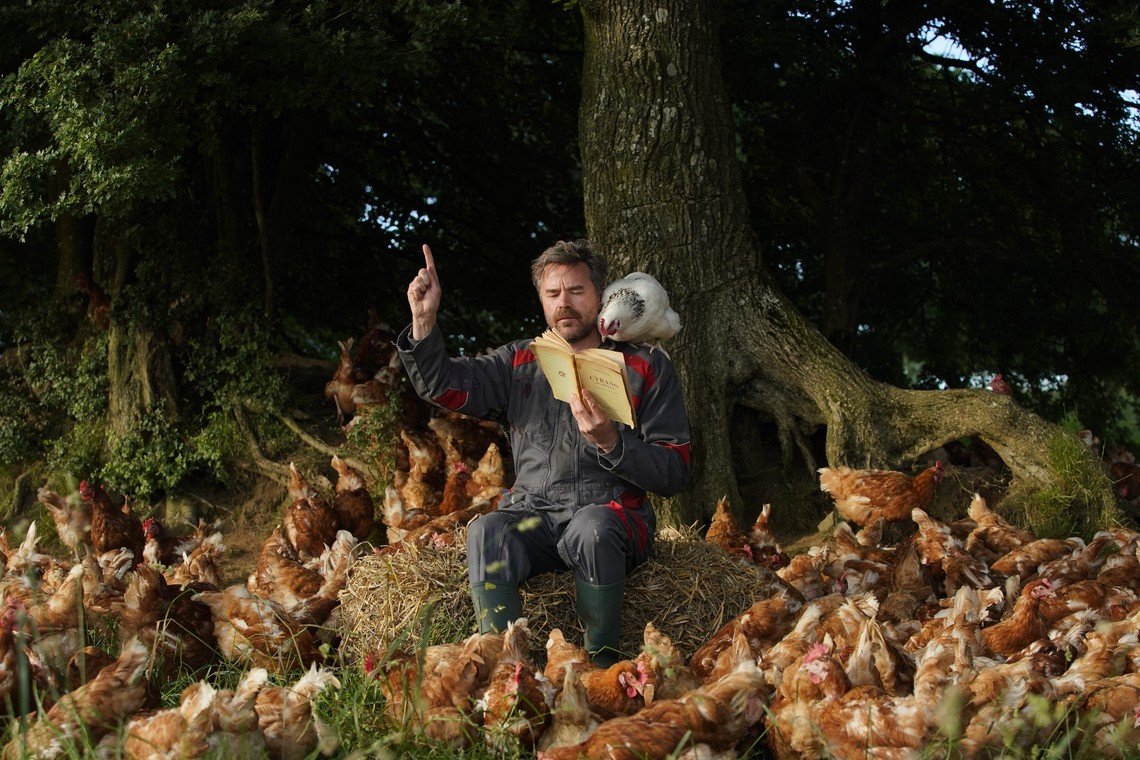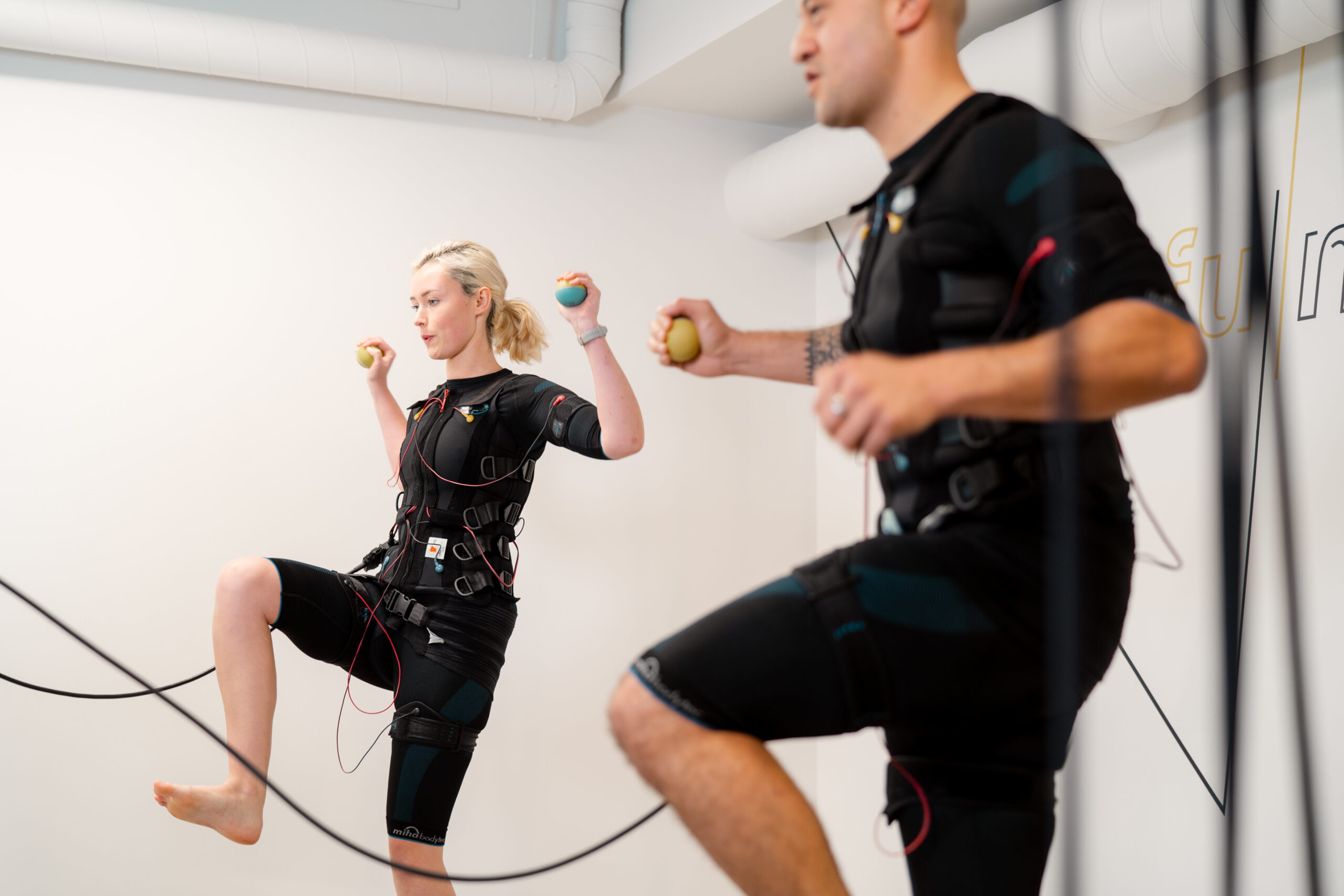Photography Andrew Coffey
Sonia Gray is a familiar face on the telly. The long-time Lotto presenter’s credit roll is impressive – Shortland Street, Wheel of Fortune, Sione’s Wedding, Kai Safari, and most recently Netflix romcom The Royal Treatment and Dancing With the Stars – and now new show My Family Mystery.
On one of her most passionate roles was as presenter and executive producer of documentary Kids Wired Differently which screened last year, and offered an insight into he lives of families with neurodivergent children.
Since the documentary aired, Gray has received thousands of emails from parents who are struggling. While she’d hoped the show would start conversations, she was not expecting it to have the impact that it’s had.
“I’m quite blown away and a bit overwhelmed by it all. It’s so great the doco made such an impact, but it’s made me realise how much work we’ve still got to do. I’ve received so many messages and I want to reply to them all because I’ve been in that position of feeling so isolated. It’s easy to feel like you’re the only family in the world that’s going through this, but you’re not, and hopefully the documentary helped to show that.
“Last week I was approached by a man who said, ‘My wife and I are really struggling to help our son who is autistic. We watched your documentary and at the end of the show I turned to my wife and said, ‘Thank God we are not alone’. He was crying, I was crying, our stories are different, but the struggle is the same.”
Of course, Gray and the show’s producers could not cover off this weighty topic in one commercial hour of television and because of the huge response she independently set up a Facebook support group – a safe place where people could go if they were struggling, tell their story and connect.
Gray is no stranger to struggle, though to many that may come as a surprise. Surely someone so successful and gorgeous with such a megawatt smile must have it all?
Over the years she has used her struggle as a force for good by using her platform as a well-known television personality to speak out on topics that are traditionally swept under the carpet.
Having suffered on-and-off with depression through her 20s, Gray was one of several celebrity faces including John Kirwan, to take part in the Like Minds, Like Mine campaign in 2000 and has served as a Mental Health Foundation ambassador.
Kids Wired Differently put the spotlight on Gray’s daily challenge of dealing with her 13-year-old daughter Inez’s range of neurodevelopmental conditions which include ADHD, ASD (Autism Spectrum Disorder), Dyslexia, Dyspraxia and OCD (Obsessive Complusive Disorder).
It wouldn’t have been her first choice to be so public about her private life, but she realised that would be the most effective way to reach people.
“I knew quite early on that I was going to need to speak out publicly at some point – I was mortified by just how broken the system is,” she says. “I’m in a privileged situation where we don’t need to take out a second mortgage to get private help. My husband, Simon, is an amazing support. I’ve got all good things that should make it okay, yet we were not coping. Every night I’d be thinking, ‘how are other people doing it?’, and it turns out they’re not. They’re falling over left, right, and centre. So I started talking more openly about what we were going through, and began getting messages from people in similar situations – many of whom didn’t feel they could talk honestly to anyone else. There are many reasons for this, but I think the main one is that parents get blamed. Not always explicitly, but you feel it as a parent. So, there’s a lot of shame, fear, guilt and stigma.”
Since the documentary aired, Gray has reflected on the trauma her family have gone through and how she can help herself and others find peace and acceptance.
“I realised for years I’ve gone to bed feeling like I’d failed as a parent. I couldn’t get my daughter to school. I couldn’t control her. She was violent at school, at home, in public. And that is like society telling you, you have failed,” says Gray. “It’s a horrible feeling. So, once you share that and realise other people are going through this and they’re struggling, it makes you realise it’s not your fault.”
As a result, she is “wearing life like a loose blanket much more”. If she can’t get Inez to school on time or Inez doesn’t get to school, it’s okay. “I have to be led by her. She loves school but it is very stressful for her because of all the sensory stuff and she’s exhausted when she gets home. Realistically, getting her to school five days a week is not going to happen.”

Advice to those looking in.
Gray has huge gratitude for a handful of teachers who now hold a special place in her heart.
“Teachers can make a huge difference to the lives of not just these kids, but their wider whanau. Inez’s teachers believed in her and started each day afresh, no matter what had happened. They kept thinking of different ways to approach things which was exhausting for them but it worked. They really loved her and continued to love her even when her behaviour was super-challenging. These kids don’t want to be naughty. They’re not doing it on purpose.”
Gray admits if she didn’t have a neurodivergent child, she would find it really difficult to understand. She is often the recipient of well-meaning advice like ‘has she tried giving Inez Omega-3 capsules?’. “If only it was that simple,” she laughs. (For the record, she did try Omega 3 and every other supplement available).
So, what’s her advice to parents looking in from the outside?
“Parents of neurotypical kids can make a huge difference to us through acceptance and inclusion,” she says. “Our kids might be around at your house and ‘fail’ in some way, mess something up or create a scene at a birthday party. But please don’t cut them out. If you can, encourage your kids to embrace ours and all their differences. It won’t just be great for us; it’ll be great for your kids. I’ve seen my daughter’s friends learn so much.”
Turning a corner
The family has been lucky to have received some really good help along the way and Inez now has different strategies she can use when she is over-stimulated. Animals are important to her and when she is feeling stressed, she’ll go and find her pet cat Blackfire, who calms her down. Or she’ll remove herself to go and read a book.
“She has a lot less meltdowns than she once did. She has better awareness of her triggers; we have a better understanding and of course her brain is maturing,” says Gray. “What we’re struggling with right now is OCD which is a tough one – it’s very powerful. She has complicated and non-negotiable routines which help her feel safe but are tough on the rest of the family. It’s pretty severe right now but we’ve learnt that these things do come in waves. We just work with each challenge as it comes up and continue to love her unconditionally.”
Despite this, the family feel they have turned a corner, and that also goes for Inez’s twin sister Thandie, whose own needs have generally had to play second-fiddle to those of her sister.

Coping strategies
Gray says advocating for her daughter has been the toughest thing she’s ever done and the process left her completely burnt out. “I was desperate to find a way to help her function and be happy, but it almost destroyed me. This happens to so many parents like me – we think if we just keep going harder, we can make everything okay. But it doesn’t work like that… Letting go and just making the home environment as positive as possible is so important. It might not look like your standard home environment – which ours doesn’t. We don’t do the things that other families do – we very rarely go on holidays or to the beach and we don’t have people over that much. My work has to be really flexible because things can turn pear-shaped pretty quickly. But that’s what we need to do, and I’ve made peace with that.”
She has noticed that since she is less stressed about it, Inez is less stressed. “Neurodivergent kids are amazing really. They sense so much but part of that sensing is she can feel when I’m stressed, even if I’m smiling, she knows what’s going on inside.”
Gray has found meditation really helpful. “I focus on acceptance and try not to compare our life to others – it’s not wrong, it’s just different,” she says. “It’s not the picture that I had before I had kids, but that’s okay. And I make sure I regularly check in with myself. I need to recognise when I’m going down and know when I have to take time out.”
“In the early days people would say ‘make sure you take time out for yourself’. And it really pissed me off and I’d think, ‘how can I take time off for myself when I’ve got to deal with all of this?’. It’s a process, but you get there.”
Top tips for parents
Living with this situation for the past seven years means Gray has gained valuable insights. Her top tip for parents with a neurodivergent child is to stay on your kid’s team as much as you can.
“You won’t be able to meet all society’s expectations because they’re not set up for your kid. People might be offended, and they’ll probably judge you, but there are lots of us who aren’t meeting those expectations. So the number one thing is keep your kid’s self-worth intact. For example, if they’re dyslexic, they need reminding that dyslexics are the game-changers of the world, the big thinkers. That they have something special to offer the world,” she says.
“These kids need celebrating and they need ‘wins’, and in many cases it will mean taking them out school or finding a school that is a better fit for them. You can only advocate so much, you only have so much energy. And it’s important to trust your gut. There are a lot of us that look back and think ‘we knew that, that was the wrong thing’, but we trusted the experts. Sometimes they’re right, but we know our kids the best. Your kid won’t be able to meet all the expectations and that’s okay. Know the reason they’re giving you a hard time is that they’re having a hard time.”

Adult ADHD diagnosis
Recently Gray discovered she has ADHD (Inattentive) which came as a huge surprise to her but was also a relief. It turns out adult women are the most underdiagnosed group for ADHD and it was only picked up when a psychologist working with Inez suggested Gray and her husband Simon get tested.
She has since come to realise, through the help of a psychiatrist, that her issues with anxiety and depression came from untreated and undiagnosed ADHD and is working to unpack that.
“Now I understand how my ADHD affects my brain and all the positive things that come with it,” Gray explains. “I think that anxiety and depression come from a lack of self-worth. Like, ‘how can all these people be on top of their emails and getting to places on time and not forgetting anything’. It’s such an effort for me.”
Looking forward to Christmas
For years the family have been very much guided by what Inez could cope with and they keep it low key. “Christmas can be a stressful time, why do we do this to ourselves?” Gray laughs. “We keep it simple but it’s still lovely and I love that coming together of family. But at the same time, Christmas doesn’t have to look a certain way just like our brains don’t have to look a certain way.”
She has wonderful Christmas memories growing up, gathering with her extended family at her grandmother’s home in Epuni, Lower Hutt. Standing around the piano singing Christmas carols, performing pantomimes and watching the Queen’s speech.
And she loves a good Christmas cracker. “My mother-in-law takes them apart and puts extra things in like Instant Kiwis and extra treats, so we’re all gunning for the win!”
Husband Simon usually takes charge of the presents, though the twins are easy to please. “They are very easy in that way. They’re not really into material things and love to go opshopping. They’re not ‘stuff’ kids and I think a lot of kids of their generation are like that,” she says.
Navigating summer
Summer holidays are also different for the family because Inez finds it hard to do many things though that is changing.
“She has these wonderful friends now and what’s great for kids like her is that when they develop these great friendships that pushes them out of their comfort zone – they want to do what their friends are doing. So last year we did go to the beach for a couple of days and she swam in the sea for ages. Sea and sand are usually a huge problem for her, but she pushed past that because she really wanted to have that time with her friend. It was amazing. We are also lucky that we have a swimming pool so we do a lot of stuff at home. We’re kind of homebodies.”

“Now I understand how my ADHD affects my brain and all the positive things that come with it,” Gray explains. “I think that anxiety and depression come from a lack of self-worth. Like, ‘how can all these people be on top of their emails and getting to places on time and not forgetting anything’. It’s such an effort for me.”
Biggest learnings in 2022
2022 has been a year of growth for Gray and her biggest learning, if she were to sum it up in one sentence, is “everyone is doing the best that they can”.
“Having a neurodivergent kid offers so many life lessons – Inez is my greatest teacher. You have this up close example of how different and unique our brains are. We’ve recently discovered Inez is also dyslexic. She’s been reading chapter books since age 5 but she can’t spell, and writing is hard. It’s not that she’s not trying. She sees words in a completely different way.
A highlight and lowlight of the past year was Gray’s experience on Dancing With the Stars (DWTS). Partnered up with DWTS legend Aaron Gilmore, she looked set to sparkle so it was a shock to all when the pair were the first voted off the reality TV show.
“It was devastating. I cried for three days. I felt like I had really failed – failed my charity ADHD NZ, my dance partner, my friends, my kids. It was this overwhelming sense of failure and then I felt guilty for being devastated because there’s Ukraine and all these other terrible things going on in the world. I think if it had been any other show I wouldn’t have cared but I love DWTS and was so excited to be part of it and learn to dance.”
Having ADHD made it challenging for her to learn the massive choreographies over a short period of time and she is grateful to Gilmore for being so patient and kind.
What she did learn was that reality TV is not for her, she found it difficult to navigate the “unrealness” of it all. So maybe the quick exit was a blessing in disguise.
She confesses she also finds criticism harder to deal with than most, which is an aspect of her ADHD.
“I don’t always put myself out there in ways that would be advantageous to my career because I know that certain roles get more criticism. I could never be a talkback host or Breakfast TV presenter. With the documentary, I was very aware that it might get some criticism. Ninety-nine per cent of the feedback was so positive. But the one per cent takes up all your head space. It’s all you can think about and you can’t even see all those people that have been helped. I’m terrible at dealing with criticism. I’m working on it.”
Gray is currently working on a new show – Passengers – a four-part series for TVNZ 1 that looks into the immigration stories of people who came to New Zealand under interesting circumstances, meeting their descendants who don’t know the story and taking them through it, which Gray says has been emotional, but rewarding.
New Year ahead
Gray is not one for looking too far ahead and admits she hasn’t really thought too deeply about 2023 and prefers to take it one day at a time.
What she does know is that she wants to do more in the area of neurodiversity because there’s so much that needs to be done in this space.
If she had to pick one word for the year it would be “ease”. Which for her means “wearing life like a loose blanket and relinquishing control”.
“I really believe we feel like we have more control than we do and we’re constantly fighting that and it is just exhausting,” she says. “If we can just go, okay, life will play out how it plays out and we’ll do the best we can with what that is, it makes everything so much easier. You have so much more energy to be loving and kind and understanding, and life is better.”





